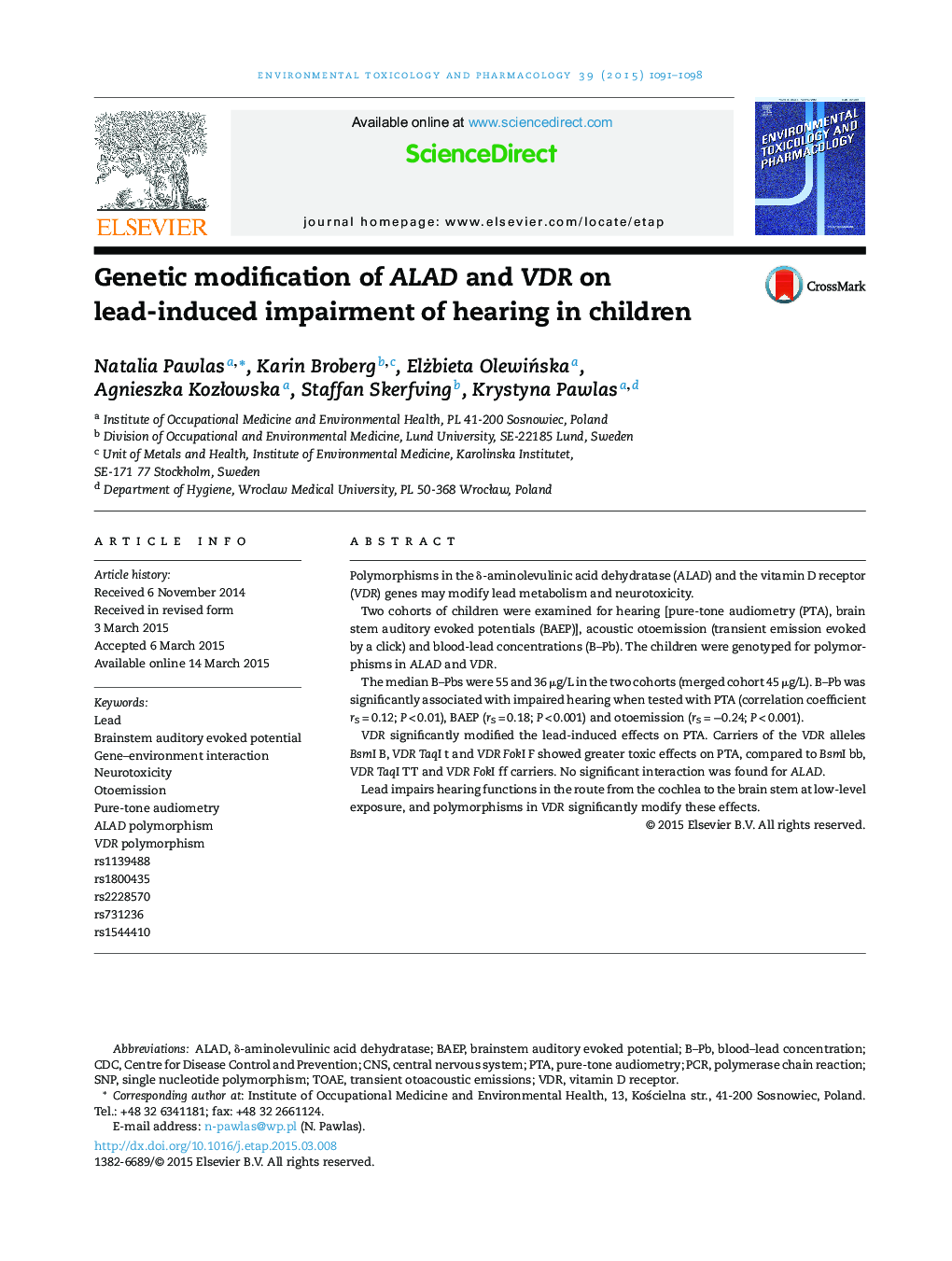| Article ID | Journal | Published Year | Pages | File Type |
|---|---|---|---|---|
| 2583144 | Environmental Toxicology and Pharmacology | 2015 | 8 Pages |
Polymorphisms in the δ-aminolevulinic acid dehydratase (ALAD) and the vitamin D receptor (VDR) genes may modify lead metabolism and neurotoxicity.Two cohorts of children were examined for hearing [pure-tone audiometry (PTA), brain stem auditory evoked potentials (BAEP)], acoustic otoemission (transient emission evoked by a click) and blood-lead concentrations (B–Pb). The children were genotyped for polymorphisms in ALAD and VDR.The median B–Pbs were 55 and 36 μg/L in the two cohorts (merged cohort 45 μg/L). B–Pb was significantly associated with impaired hearing when tested with PTA (correlation coefficient rS = 0.12; P < 0.01), BAEP (rS = 0.18; P < 0.001) and otoemission (rS = −0.24; P < 0.001).VDR significantly modified the lead-induced effects on PTA. Carriers of the VDR alleles BsmI B, VDR TaqI t and VDR FokI F showed greater toxic effects on PTA, compared to BsmI bb, VDR TaqI TT and VDR FokI ff carriers. No significant interaction was found for ALAD.Lead impairs hearing functions in the route from the cochlea to the brain stem at low-level exposure, and polymorphisms in VDR significantly modify these effects.
